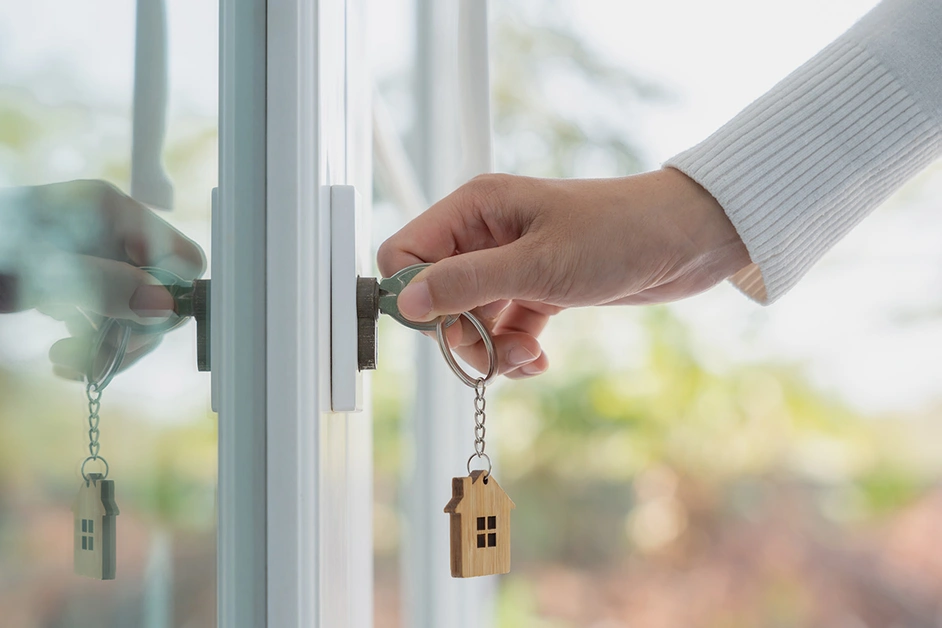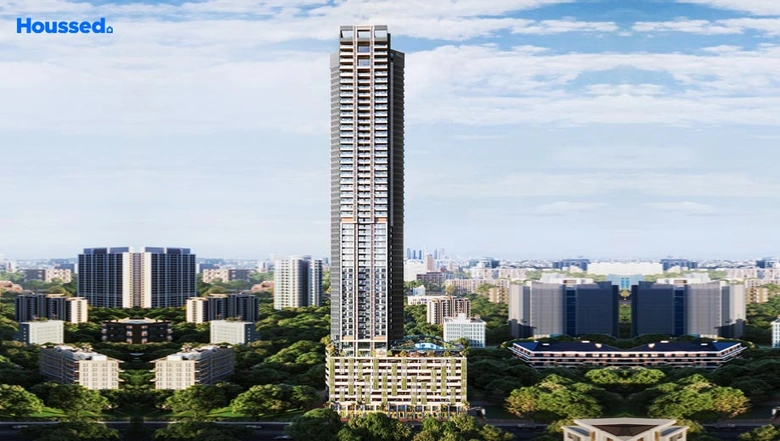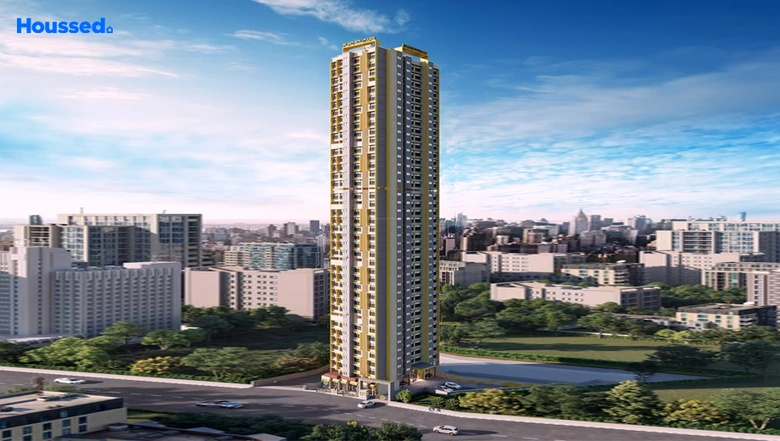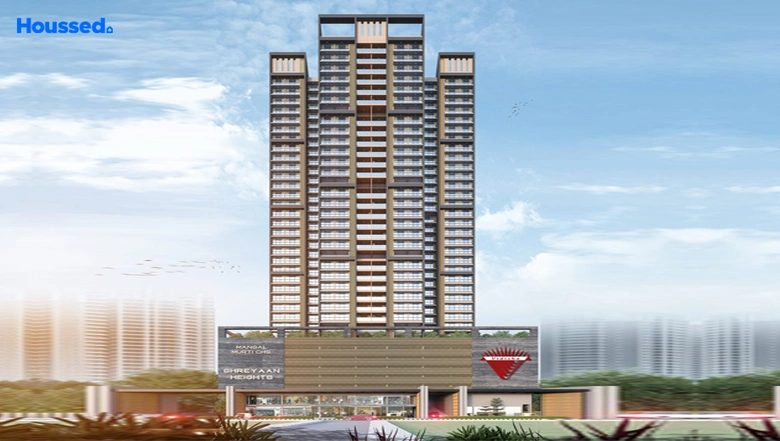Vastu for Home Entrance (14 Must-Do Tips for 2025)

Creating positive vibes at home is a universal aspiration. Vastu offers guidance on channelling positive energies into our living spaces, including the home entrance. Our homes, where we spend a significant amount of time, should ideally serve as bubbles of peace and prosperity. Vastu principles highlight the importance of directions, and understanding them can enhance the positive vibrations in our living spaces. The main entry point, often the front door, acts as a gateway for energy to flow in, and Vastu for home entrance plays a crucial role in harnessing environmental positivity. This guide delves into the impact of Vastu directions on our lives, with a specific focus on the pivotal role of the home entrance.
What is Vastu for Home Entrance?
Vastu Shastra offers guidance on the optimal orientation for your home's entrance, emphasising directions like north, east, northwest, or northeast. According to Vastu principles, these directions are believed to invite positive energies into your home. If achieving these orientations is challenging, the southeast can be a viable option for the main entrance. This alignment is considered essential for promoting a harmonious and prosperous atmosphere within your living space.
To enhance the financial aspects of your home, Vastu suggests incorporating symbols of prosperity. Placing images or idols of Ganesha and Lakshmi on your main door is believed to attract wealth. Ganesha is revered as removing obstacles, while Lakshmi symbolises wealth and abundance. By placing these elements into your home entrance, you are thought to harness positive energies that can positively influence your financial well-being.
Importance of Home Entrance in Vastu
In Vastu Shastra, the home entrance holds significant importance, and the north direction is deemed particularly promising for the main door entry. This preference is rooted in the association of the north with Lord Kubera, the deity of wealth.
The belief is that positioning the main door in this direction is a powerful means to invite wealth and prosperity into the home, aligning with the harmonious forces associated with Lord Kubera and fostering a positive and prosperous living environment.
Vastu for Home Entrance in Different House Directions
Vastu Shastra offers the ideal alignment of elements in a living space to promote positive energy and well-being. The entrance of a home holds particular significance in Vastu, as it is considered the gateway for energy Here's a brief overview of entrance Vastu for homes facing different directions:
East-Facing House
An east-facing house, aligned with the direction of the rising sun, is widely regarded as auspicious in Vastu. For multi-storey apartments, Vastu experts recommend Jayant and Indra padas for the main entrance, adding to the overall positive energy of the home.
West-Facing House
In Vastu Shastra, a west-facing entrance might be less suitable for female members of the family. However, it can be an ideal choice for younger family members. For west-facing homes, it is advised to consider entrances in beneficial padas like Sugreev, Pushpdant, and Varun, while avoiding Duawarik, Asur, Shosha, and Papyakshama padas.
North-Facing House
A north-facing house with a main door oriented towards the northeast, also known as the Ishan Corner, is considered highly auspicious in Vastu. This orientation is believed to attract good luck and new opportunities. The northeast direction is ruled by Diti, a deity associated with generosity.
South-Facing House
When dealing with a south-facing house, dividing the south part into nine equal parts (padas) is recommended. The main entrance should ideally be in the fourth pada, facing north or east. Alternatively, the third, second, or first pada can also be considered. However, it's advisable to avoid placing the entrance in the southwest direction for overall Vastu harmony.
Ideal Direction for Home Entrance as per Vastu
Vastu Shastra emphasises the significance of a home's orientation in shaping its energy flow and overall harmony. Each cardinal direction holds specific attributes influencing the well-being of its occupants. Here are the ideal directions for a home entrance as per Vastu principles.
East Direction
The east direction is considered auspicious for placing the main door as per Vastu principles. This orientation allows the entrance to receive the morning sunlight, infusing the house with positive energy and vitality. While it may not be the absolute best, it still enhances the overall power and festive ambience within the home.
North Direction
Placing the main door in the north direction is believed to invite wealth and fortune into the family. Though not as auspicious as the north-east, this orientation aligns with Vastu principles that associate the north with prosperity. Choosing the north direction for the main entrance is considered the second-best option, bringing financial well-being to the household.
Northeast Direction
The northeast direction is regarded as the most auspicious for the main door placement. This orientation benefits from exposure to the morning sun, channelling immense energy into the house and its inhabitants. The positive vibes from this direction contribute to the overall well-being and prosperity of the home, making it an ideal choice for the main entrance.
Southeast Direction
While not the first preference, if circumstances dictate, the southeast direction can be chosen for the main entrance. It is important to avoid settling for a southwest entrance according to Vastu principles. Despite being a secondary choice, a southeast entrance allows for the avoidance of unfavourable energy flows, ensuring a more harmonious living space.
Northwest Direction
If the north direction is a necessity for the main entrance, Vastu suggests opting for the northwest direction. Although not the most ideal, this orientation still allows the home to benefit from the evening sun and attracts prosperity. Choosing the northwest entrance aligns with Vastu principles, ensuring that positive energy and financial well-being are welcomed into the home.
Vastu Tips for Home Entrance
The direction of your home entrance plays a crucial role, in influencing the flow of energies within. Delve into various Vastu Shastra tips to optimise your home entrance and foster a balanced atmosphere.
Home Entrance Direction
In Vastu Shastra, the orientation of your home entrance is pivotal. The north direction, associated with the divine presence of Lord Kubera, is considered auspicious. Aligning your entrance with this direction will attract positive energies, promoting prosperity and well-being. It's advisable to consult a Vastu expert for precise direction alignment.
Nameplate Vastu for Home Entrance
A nameplate at your home entrance serves a functional purpose and holds Vastu significance. Ensure it is clear, well-lit, and placed on the right side of the entrance. The nameplate is considered a subtle invitation for positive energies and facilitates the smooth flow of positivity into your home.
Wooden Accents Vastu for Home Entrance
Introducing wooden elements near the entrance is believed to bring warmth and grounding energy. Wooden furniture or decor items contribute to a balanced and inviting entryway. The natural essence of wood is associated with stability, creating a positive and composed atmosphere as you step into your home.
Elevated Floor Before the Entrance
An elevated floor just before the entrance holds symbolic importance in Vastu. It signifies rising above negativity and obstacles before entering your home sanctuary. This elevation is believed to set a positive transition, allowing for the flow of positive energy and discouraging negativity from entering.
Using Threshold to Improve Vastu for Home Entrance
The threshold of your home is a symbolic boundary between the outer world and your inner sanctuary. Keeping it well-maintained, clutter-free, and decorated with auspicious symbols can enhance the transition, marking a clear distinction between external influences and the positive energy within your home.
Placement of Doormat and Dustbin at Home Entrance Vastu
Strategically placing a clean and well-designed doormat and dustbin near the entrance contributes to the overall cleanliness and positive energy of the space. A clutter-free and well-maintained entrance welcomes guests and encourages the smooth flow of positive energy into your home.
Placement of Door in Corner of Home Entrance
Avoid placing the main door in the corner, as it may disrupt the energy flow. A central and well-lit entrance is preferable for good Vastu. Corner placements are believed to cause imbalance and may lead to disturbances in the harmonious energy flow within your living space.
Home Entrance Steps Vastu
The steps leading to your home entrance should be even, well-maintained, and aesthetically pleasing. Uneven or damaged steps are believed to impede positive energy flow, causing obstacles in your path. Well-kept steps contribute to a smooth entry and an uninterrupted flow of positive vibrations.
Decoration Around Home Entrance Vastu
Simple and aesthetic decorations around the entrance create a welcoming atmosphere. Avoid overcrowding the space with too many decor items. Balance is key – choose decorations that resonate with positive energy and complement the overall Vastu of your home, creating a harmonious and inviting entrance.
Placing of God at Home Entrance Vastu
Placing idols or symbols of deities, such as Ganesha, near the entrance is considered auspicious. Ganesha is revered as the remover of obstacles and a symbol of good fortune. This placement is believed to invite divine blessings, remove hindrances, and usher in positive energies as you enter your home.
Creating Well-Lit Space for Better Vastu
A well-lit entrance enhances the overall positivity of your home. Ensure ample lighting to create a bright and inviting space. Well-lit entrances are associated with a sense of security and positivity, making it conducive to a welcoming and harmonious living environment.
Plants at Home Entrance for Good Luck
Incorporating greenery near the entrance is believed to bring good luck and positive energy. Choose auspicious Vastu plants like money plants or holy basil, known for their positive vibes. Well-maintained plants add a touch of nature and contribute to a refreshing and inviting atmosphere, promoting good luck and well-being.
Building a Passageway in Foyer
A clear and uncluttered passageway in the foyer encourages the smooth flow of energy throughout your home. Avoid excessive furniture or obstructions that may impede the positive energy circulation. A well-designed passageway enhances the overall Vastu of your home, creating a balanced and positive atmosphere.
Mirror at Right Angle to The Door at Home Entrance
Positioning a mirror at a right angle to the entrance is thought to deflect negative energies. It also creates an illusion of spaciousness, contributing to a welcoming ambience. Mirrors are believed to have protective qualities in Vastu, preventing negative forces from entering and reflecting positive energy into your home.
Vastu for Home Entrance: Do's and Don'ts
Do's:
- Orientation: Ensure the main entrance faces east, north, or northeast for positive energy flow.
- Well-Lit Entrance: Keep the entrance well-lit to invite positive energy into the home.
- Threshold Decor: Decorate the entrance with auspicious symbols, such as traditional motifs or rangoli.
- Clutter-Free Space: Maintain cleanliness and avoid clutter at the entrance to allow the free flow of positive energy.
- Durability: Choose a sturdy and well-maintained entrance door to symbolise stability and security.
- Nameplate Placement: Display a clear and attractive nameplate on or near the entrance for positive vibrations.
- Decorative Elements: Incorporate aesthetically pleasing and positive elements like potted plants or decorative items.
- Balanced colours: Use balanced and soothing colours for the entrance door, avoiding overly bright or dull shades.
- Smooth Door Movement: Ensure the entrance door opens smoothly without creaking for a positive first impression.
- Guardian Deity: Consider placing an image or idol of a protective deity near the entrance for blessings and protection.
- Decomposed Plants: Remove dead or decomposed plants near the entrance, as they symbolise decay.
- Well-lit Entrance Areas: Keep the entrance well-lit to prevent the accumulation of stagnant energy.
- Cracked Glass: Replace cracked or broken glass panels in the entrance door to prevent negative energy.
- Leaking Faucets: Fix any leaking faucets near the entrance to avoid energy drain and financial challenges.
Don'ts:
- Avoid South-facing Entrance: Refrain from having a main entrance facing south, as it may bring negative energies.
- Broken or Dull Entrance: Avoid a damaged or dull-looking entrance door, which may attract negative vibrations.
- Obstruction: Do not place obstacles or hindrances near the entrance, hindering the smooth flow of energy.
- Negative Symbols: Avoid using symbols associated with negativity or distress in the entrance decor.
- Overhead Beams: Avoid structural beams directly above the entrance, as it may create a sense of pressure.
- Sharp Edges: Refrain from having sharp edges or corners pointing towards the entrance, as they may create negative energy.
- Alignment with Another Home's Entrance: Don't align your main door with another home's entrance. If it happens, remedy it by drawing a swastika with red turmeric powder on your door.
- Obstruction of the Main Entrance: Avoid obstructing the main entrance with furniture, plants and decor. Maintain clear pathways for positive energy flow.
- Shoe Rack or Shoes in Front: Refrain from keeping a shoe rack or shoes in front of the main entrance to prevent negativity.
- Circular or Sliding Entrance Door: Avoid choosing a circular or sliding entrance door, as it may disrupt positive energy flow. Opt for a traditional and solid door design.
Effects of Home Entrance for Different Directions as per Vastu
In Vastu Shastra, the orientation of your home entrance is believed to have distinct effects on the energies that prevail within. Each direction is associated with specific deities and cosmic forces, influencing the overall harmony and well-being of the occupants.
According to Vastu, here are the effects of home entrances facing different directions.
East Direction Effects
The east direction holds significant Vastu implications, influencing various aspects of life. There are a total of 8 possible entrances in the East direction from E1 (Shikhi) to E8 (Akash). Each entrance brings distinct effects ranging from financial losses to prosperity. Understanding the energies associated with these gates is crucial for creating a harmonious living space.
- E1 [Shikhi]: Entering through this gate may lead to fire accidents and financial losses. It is essential to avoid placing the main entrance in this direction to prevent negative consequences.
- E2 [Parjanya]: This entrance is associated with wasteful expenditure and an increased likelihood of having more girls born in the family. It is considered less favourable for overall prosperity.
- E3 [Jayanta]: Identified as an auspicious entrance, E3 brings wealth, prosperity, and success to the inhabitants. It is highly recommended for positive energy flow in the home.
- E4 [Indra]: Another positive entrance, E4 fosters social associations and attracts personal benefits from influential figures, especially in government circles.
- E5 [Surya]: Entering through this zone may cause residents to become extremely aggressive and short-tempered, leading to potential conflicts and wrong decisions.
- E6 [Satya]: This entrance is associated with residents becoming unreliable and struggling to keep commitments. It may also cause trouble for the daughter in the household.
- E7 [Bhrisha]: Considered unfavourable, this entrance can make residents insensitive and cruel towards others' problems, attracting trouble from enemies.
- E8 [Akash]: Placing the main gate in E8 is discouraged, as it may result in financial losses, accidents, diseases, and theft, creating an overall negative impact.
West Direction Effects
In Vastu, the west direction plays a vital role in shaping the fortunes of a household. The West direction has 8 entrance locations from W1 (Pitra) to W8 (Papyakshama). Each entrance carries specific energies that impact aspects like wealth, stability, and relationships. Choosing the right entrance in the West can contribute to overall prosperity and well-being.
- W1 [Pitra]: Entering through this gate is not recommended as it is associated with poverty and a potential reduction in life span, bringing unfavourable consequences.
- W2 [Dwarika]: Residents entering through this door may experience instability in careers and insecurity in family relationships, leading to potential relationship problems.
- W3 [Sugriva]: A highly auspicious entrance, W3 brings incredible wealth, growth, and prosperity to the household. It is considered one of the best entrances in the west direction.
- W4 [Pushpdanta]: Known as the best entrance in the West, W4 ensures prosperity, wealth and fame, making it a favourable choice, especially for actors and media professionals.
- W5 [Varuna]: This entrance provides mixed results, making a person both a perfectionist and over-ambitious, offering financial advantages but with potential challenges.
- W6 [Nakaratma]: Identified as a negative entrance, W6 can adversely affect the mind and make residents prone to mental depression. It is also harmful for the government employees and is considered an ominous entrance.
- W7 [Shauka]: Residents entering through W7 may experience unhappiness, stress, and issues related to health and finance. It also leads to drug and alcohol addiction.
- W8 [Papyakshama]: Placing the main gate in W8 may compel residents to use unfair means for personal benefits. It also keeps the people living in this house (especially men) out of the house and also provides ways for foreign tours.
North Direction Effects
The north direction is rich with Vastu significance, offering entrances that can either bring abundance or challenges. The North direction has 8 entrance locations from N1 (Roga) to N8 (Diti). Residents may experience varying influences, including wealth, prosperity, and potential conflicts. Delving into the attributes of each entrance helps in making informed decisions for a positive living environment.
- N1 [Roga]: Residents entering through N1 may be harmed by the bad intentions of others, causing unnecessary fears and keeping residents away from the house.
- N2 [Naga]: This entrance increases the number of enemies, creating a constant fear, and fostering a tendency to stalk others. It also creates a perception of jealousy from others.
- N3 [Mukhya]: Highly auspicious, N3 brings an abundance of wealth, prosperity, and growth. It is considered one of the most favourable entrances in the north direction.
- N4 [Bhallat]: Identified as Bhallat, this entrance ensures an abundance of inherited property, wealth, and prosperity, opening doors to new opportunities.
- N5 [Soma]: Residents entering through N5 tend to be more religious and calm. Soma is considered a good choice for constructing the main gate due to its positive attributes.
- N6 [Bhujang]: This entrance may cause opposition and quarrels with sons, leading to disapproval and avoidance from others.
- N7 [Aditi]: Harmful for women in the house, N7 may lead to defiance of traditional beliefs, live-in relationships, and inter-caste marriages.
- N8 [Diti]: A positive entrance is associated with a higher bank balance and increased savings, though N3, N4, and N5 are considered the most favourable entrances in the north.
South Direction Effects
In Vastu, the south direction holds clues to family dynamics, career growth, and financial well-being. There are 8 padas (entrance locations) from S1 (Anil) to S8 (Mriga) in the South direction. Each entrance carries distinct effects, influencing relationships, prosperity, and personal characteristics. Navigating the energies of the south-direction entrances is essential for a balanced and prosperous life.
- S1 [Anil]: Residents entering through S1 may negatively affect the male child, leading to conflicts between parents and children.
- S2 [Poosha]: This entrance attracts trouble from relatives but is considered better for people working in MNCs, aiding in regular promotions and salary hikes.
- S3 [Vitatha]: Provides prosperity but makes residents unreliable, and skilled in adopting unfair methods. It brings both prosperity and challenges due to residents' reliance on unconventional means.
- S4 [Grihrakshita]: Identified as the best entrance in the south, S4 brings prosperity and fame, making it a favourable choice, especially for actors and media
- S5 [Yama]: Residents entering through this entrance may face significant debts and financial losses. Placing the main gate in this zone is advised against due to its unfavourable consequences.
- S6 [Gandharva]: Known as Gandharva, this entrance causes humiliation, poverty, financial losses, and defame. Residents may face challenges leading to a difficult living environment.
- S7 [Bhringraj]: Entering through S7 results in a waste of effort in various aspects of life, making residents uninterested in hard work and leading to disappointment.
- S8 [Mriga]: Considered the most inauspicious entrance in Vastu, S8 makes residents rude, insensitive, and disconnected from society. It brings about the loss of wealth, power, and strength, leading to sorrow from children.
Remedies for Vastu Dosh in Home Entrance
- Crystal Balls: Crystal balls can be used as an alternative to pyramids as they too help in amplifying energies. Ensure these items are kept clean and in clutter-free areas for optimal effectiveness.
- Aquarium: Placing a fish tank or aquarium in the northeast area of the living room is considered auspicious and helps eliminate Vastu defects and promotes positive energy.
- Horseshoe: Hanging a horseshoe on the main door with ends facing upwards invites good luck and facilitates the smooth flow of positive energies.
- Sea Salt: Keeping small amounts of sea salt in the corners of the house cleanses the air and eliminates negative energies, according to Vastu principles.
- Panchmukhi Hanumanji: Place a Panchmukhi Hanumanji (standing posture) with a gada in the left hand on the center top of the main entrance. Hanuman is a revered deity in Hinduism, and this placement is believed to provide protection and positive energy.
- Gayatri Mantra Painting: Paint the Gayatri mantra on the main door. The Gayatri mantra is considered a powerful and spiritually significant mantra in Hinduism.
- Red Carnelian Gemstones: Place nine red carnelian gemstones at the gate facing the south-east entrance. The number nine is considered auspicious in many cultures, and red carnelian is believed to have positive energy.
- Symbols and Stickers: For homes with the main entrance in the south-west direction, place symbols such as Om, Trishul, and Swastik on the door. These symbols are believed to bring positive energy and counteract any negative effects.
Things You Should Not Keep at Home Entrance as per Vastu
The entrance of your home is considered the gateway for energy and influences the overall well-being of the household. To maintain a positive energy flow, it's crucial to be mindful of what is placed at the entrance. Let's explore items one should avoid keeping at the home entrance, as recommended by Vastu principles.
- Footwear: Shoes carry energy from various places, and bringing them inside can introduce negative vibrations. It is advised to keep footwear outside the main entrance to prevent negative energy from entering the home.
- Thorny Plants: Thorny plants, such as cacti, are believed to bring in negative energy and disrupt the positive flow at the entrance. It's recommended to avoid placing these plants near the main door.
- Garbage Bin: A garbage bin near the entrance can accumulate negative energy and hinder the positive flow. It is advisable to place bins away from the entrance to maintain cleanliness without affecting the energy balance.
- Rusted Lock: A rusted lock symbolizes stagnation and can contribute to blocked energy. It is recommended to keep locks well-maintained, ensuring smooth functioning and preventing the accumulation of negative energy.
- Water Clogging: Stagnant water, whether from rain or other sources, is considered inauspicious in Vastu. It is advisable to address water clogging issues promptly to prevent the accumulation of negative energy at the entrance.
- Goddess Lakshmi Poster: Placing an image or poster of Goddess Lakshmi directly facing the entrance is considered inauspicious in Vastu. It is believed to hinder the flow of wealth energy. Instead, place such depictions on the home's inner walls for a more favourable impact.
Conclusion
Vastu Shastra for home entrance:
The home entrance in Vastu Shastra holds significant importance as it is considered the gateway for energy to flow into the house. A well-aligned entrance ensures positive vibrations and harmonious energy within the home.
Importance of home entrance in Vastu Shastra:
The home entrance serves as the transition point between the external environment and the home's internal space. According to Vastu, a properly designed entrance enhances overall well-being and prosperity.
Vastu for home entrance in different house directions:
Vastu considerations for home entrances vary based on the house's direction. In an east-facing house, an auspicious entrance aligns with the rising sun, symbolizing the influx of positive energy and new beginnings. For west-facing houses, a slightly off-centre entrance is advised to balance energies. In north-facing houses, a well-lit, clutter-free entrance attracts positive energies linked to wealth and opportunities. South-facing houses benefit from placing the entrance towards the northeast to maintain energy balance and foster a positive atmosphere.
Ideal directions for home entrance as per Vastu:
- East Direction
- North Direction
- North East Direction
- North West Direction
- South East Direction
Vastu Shastra tips for home entrance:
Incorporating a clear, well-lit nameplate on the right side of the entrance is significant, serving as a subtle invitation for positive energies. Introducing wooden elements, such as furniture or decor items, near the entrance brings warmth and grounding energy, contributing to a positive and composed atmosphere as you enter your home.
Vastu for Home Entrance:
Do's:
- Maintain cleanliness and orderliness.
- Ensure proper lighting in the entrance area.
- Use auspicious symbols or decorations.
Don'ts:
- Avoid clutter and obstruction near the entrance.
- Refrain from using dark or faded colours.
- Prevent any broken or squeaky doors.
Effects of Home Entrance for Different Directions as per Vastu:
East Direction Effects:
- Shiki: Positive energy and prosperity.
- Parjanya: Harmonious family life.
- Jayanta: Fame and recognition.
- Indra: Leadership qualities.
- Surya: Positive aura.
- Satya: Mental peace.
- Bhrisha: Prosperity.
- Akash: Spiritual growth.
West Direction Effects:
- Pitra: Ancestral blessings.
- Dwarika: Material wealth.
- Sugriva: Courage and strength.
- Pushpdanta: Harmony in relationships.
- Varuna: Financial stability.
- Nakaratma: Positive energy.
- Shauka: Social recognition.
- Papyakshama: Overall well-being.
North Direction Effects:
- Roga: Good health.
- Naga: Wisdom and knowledge.
- Mukhya: Wealth and prosperity.
- Bhallat: Fame and recognition.
- Soma: Emotional well-being.
- Bhujang: Leadership qualities.
- Aditi: Positive energy.
- Diti: Stability and security.
South Direction Effects:
- Anil: Strength and vitality.
- Poosha: Growth and development.
- Vitatha: Protection from enemies.
- Grihrakshita: Family well-being.
- Yama: Discipline and order.
- Gandharva: Artistic and creative pursuits.
- Bhringraj: Prosperity.
- Mriga: Positive vibrations.
Remedies for Vastu Dosh in Home Entrance:
- Use crystals or mirrors to deflect negative energies.
- Perform regular cleansing rituals with salt water.
- Place a wind chime near the entrance for positive vibrations.
Things that one should not keep at home entrance as per Vastu:
- Footwear
- Thorny Plants
- Garbage Bin
- Rusted Lock
- Water Clogging
- Goddess Lakshmi Poster
FAQ's
Vastu Shastra for home entrance is a set of principles that guide the positioning and design of the main door to optimize the flow of positive energies. It involves aligning the entrance with specific directions and incorporating elements to attract prosperity, harmony, and well-being into the home.
The home entrance is crucial in Vastu as it serves as the primary channel for energy to enter the home. Properly aligned entrances are believed to invite positive vibrations, promoting harmony, wealth, and overall positive influences in the household.
Vastu tips for home entrance include choosing auspicious directions, keeping the entrance clutter-free, using symbols of prosperity, ensuring proper lighting, and avoiding certain placements or elements that might disrupt the flow of positive energy.
Ideal Vastu directions for home entrance include northeast, north, northwest, east, or southeast. These directions are associated with positive energies, prosperity, and well-being.
According to Vastu, a home entrance in the southwest direction is generally considered unfavourable. It is believed to bring about instability, financial issues, and may impact the overall harmony within the household.
Yes, placing the home entrance in the northeast direction is considered auspicious in Vastu. This direction is associated with positive energies and is believed to invite prosperity and well-being into the home.
Idols of Lord Ganesha and Goddess Lakshmi are considered suitable for home entrance in Vastu. Lord Ganesha is believed to remove obstacles, while Goddess Lakshmi symbolizes wealth and abundance.
Yes, placing an idol or image of Lord Ganesha at the home entrance is considered auspicious in Vastu. It is believed to remove obstacles, bring positive energy, and ensure a harmonious entry into the home.
The ideal direction for the home entrance as per Vastu is northeast, north, northwest, east, or southeast. These directions are associated with positive energies and prosperity.
A south-facing home entrance in Vastu might bring challenges, including financial instability and health concerns. It is advisable to consult a Vastu expert for remedies in such cases.
A north-facing home entrance is generally considered auspicious in Vastu, bringing positive energy and prosperity. It is associated with overall well-being and financial stability.
Do’s in Vastu for home entrance include keeping the area clean, using symbols of prosperity, and ensuring proper lighting. Don’t include clutter, broken doors, and unfavourable placements that might disrupt positive energy flow.
Remedies for Vastu dosh in the home entrance include using mirrors, maintaining cleanliness, fixing broken elements, placing protective symbols, and ensuring good lighting. These remedies are believed to counteract negative influences and enhance positive energy flow.









